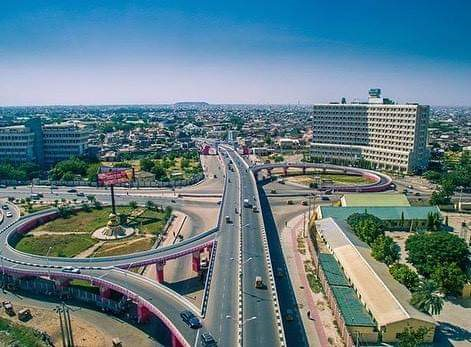Last week the working days were so crowded with events, a few very close to my heart but taking place so far apart, that one was stretched to catch up with them. The ALDDN, the acronym for Advancing Local Dairy Development in Nigeria – a program that I had written so much about on this page was being launched in Abuja on Thursday and on Friday Governor Babagana Umara Zulum of Borno State was to meet with members of the Mega Schools Committee for an update. The Mega Schools, a conception of Governor Kashim Shettima, are purpose-built public schools, with all the modern appurtenances for conducive learning, targeted to admit mostly orphans and other deprived children particularly from IDP camps. Though the schools were inaugurated by President Muhammadu Buhari in May last year, they were billed to start operating at the beginning of the school year in September.
Thus on Thursday morning I headed to Fraser Suites, Abuja, the venue of the launch of the ALDDN where I found a small group of expectant guests had already gathered mostly from those that have been in the fore front advancing the cause of the dairy industry. Besides the hosts, Sahel Consulting, and the development partners Bill and Melinda Gates Foundation who largely fund the program, there was an overwhelming presence of the officials of the Federal and States Ministries of Agriculture. The big ranchers that had keyed into the program were also there. They include L& Z Farms of Kano, IDL of Jos, Friesland Wamco of Ibadan, the reps of the Cooperative farms in Kaduna State and others.
Officials of Bill of Melinda Gates Foundation who spoke at the occasion impressed upon us that the project constitutes one of their biggest investments in the country at a time when the dairy sector is in dire need for such boosts. The ALDDN program will run in five states of the federation, Kano, Kaduna, Jigawa, Bauchi and Adamawa and is expected to reach 60,000 dairy farmers in 15,000 dairy households. The program is to be implemented in partnership with private sector companies, with the support of the Federal Ministries of Agriculture and Rural development, Health, Women Affairs and Social Development and the governments of the implementing states.
A major takeaway from their speeches is that there would be a consolidation of the government’s intention to settle the nomadic cattle herders, so as to improve their access to water, fodder, drugs and vaccines. This will help to boost milk and meat yield for the overall good of the nation. This should improve the economic wellbeing of the herders and firmly integrate them into the firmament of the national economy. In the very long run this is the vital antidote needed to curtail the nomads/ farmers endless feud.
The Minister of Agriculture, Sabo Nanono made a brisk appearance and when introduced made an impassioned speech calling for due recognition to be accorded to the hitherto neglected dairy industry. He told us that he regarded his appointment into the Ministry of Agriculture as a personal crusade to uplift the dairy industry to its proper level. Though he had been known more as a notable in the corporate world, he had actually been a farmer all his adult life and had raised cows for over 40 years. This long association with cows is an advantage that has given him deep insight into the dairy industry. He is therefore personally committed, and is fortunate to find himself in a Government that is focussed in pursuing those tested policies that would bring succour to the dairy industry. He assured that the Federal Government would work to consolidate all existing policies into one policy to transform the sector. He asserted that the nomads might be said to own the cows but truly cows are national assets because they make valuable contribution to the GDP of up to 17% of the total. It is therefore in our overall interest to guard and nurture the dairy industry and raise it to world class.
When the launch wound down to a close, I left for the airport to take the Azman flight to Maiduguri. I found the airport clogged with passengers most of them awaiting the Maiduguri flights. I guess it was a clear indication of the pressure now mounted on the only two daily flights into Maiduguri. Road travel around the country is generally risky now due to the spate of kidnappings and armed robberies on the highways, but getting to Maiduguri has its additional burdens. The only safe road linking the Borno State capital with the rest of the country through Damaturu is witnessing a number of audacious attacks by the Boko Haram terrorists on the couple of kilometres between Benisheikh and Auno, very close to Maiduguri, making air travel the only option for those that can afford it.
At Maiduguri I was surprised to find a city at peace with itself. It is not the besieged city that those outside deem it to be. There was normality within, with people going about their businesses without hindrances. I motored around to Fezzan and Hausari wards, where I grew up, and was astounded at the bustle of activity all around. The roads have been re-tarred in the last few months and there are solar operated boreholes at every nook and corner. There is an air of contentment among those I interacted with and a feeling that the government is linking up with them not only because of the provision of essential needs but also for speaking up to the Federal authorities when necessary. However, we must not discount the fact that Maiduguri is truly encircled. These murderous gangsters have taken over all the highways into Maiduguri, whether it is from Yobe, Bauchi or Adamawa side, and are hitting hapless commuters with impunity. The northern outlets to Chad, Cameroun and Niger Republics have long been shut by both the activities of the insurgents and Federal Government policy of border closure. It seems a like a slow death for a city that had been a centre of trade not only in the country but as a hub for all the surrounding countries.
At the Government House, the next day, Friday, the same scenario of hope and cheerfulness pervaded the atmosphere. The Governor was not only meeting with the Mega schools’ committee but was also inaugurating the State Education Trust Fund – ceremonies that were clearly a thumbs down to the Boko Haram ideologies that propagates that education is evil. The meeting with the Mega schools’ committee was routine and therefore brief. Many of the schools have gone into operation with the exception of some teething problems that were raised and thrashed. It is clear that the Governor is bent on keeping the legacies of his predecessor alive and well.
Many had misgivings on how the state with the problems confronting it would run such large number of schools for the exclusive use of orphans and street children with consistency. These are schools that were well built with boarding facilities, air-conditioned classrooms, dedicated electricity lines with solar inverters on the side with the best available teachers. However, from the briefings and the interchanges that followed, I realized that many of these misgivings were misplaced because there is a robust financial plan in place. Once these schools succeed they are bound to become beacons to the rest of country and I foresee a rush to emulate them in many states of the federation.

 Join Daily Trust WhatsApp Community For Quick Access To News and Happenings Around You.
Join Daily Trust WhatsApp Community For Quick Access To News and Happenings Around You.


